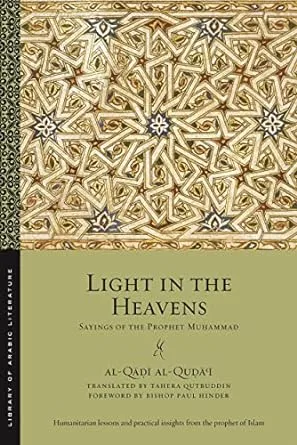There are many nations in the Arab world, each of which has a long history. There are more than 25 different Arabic dialects as a result.So the question which Arabic dialect should I learned is very hard to answer.
The diversity of Arabic dialects and how they interact with classical Arabic is one of the fascinating and complex aspects of the language, but it is also a source of ongoing irritation for students learning Arabic as a second language.
To sound like a native speaker, you must learn the richness of phrases, expressions, proverbs, and slang that are unique to each Arabic dialect. That is not the aim of this.
We pondered the following before selecting to study a dialect:
Along with all these points:
BEGINNERS MUST KNOW
- 1. The easy dialect
- 2- The widely used dialect
- 3- The hard dialect
- 4. The default dialect
1. What Arabic dialects exist and how are they different from Modern Standard Arabic?
It’s helpful to have a general understanding of the characteristics that distinguish the colloquial Arabic dialects from MSA before diving into specific guides. The remainder of this article will discuss a few general alterations that affect almost all dialects in some manner.
In order to do that, we must first solve diglossia, which is a major issue.
WHAT DIGLOSSIA IS?
What exactly does “diglossia” mean?
When describing the link between Modern Standard Arabic and the numerous dialects, the word “diglossia” is frequently used. Beginning Arabic learners often struggle with issues like “Should I learn MSA or a dialect?” “Which dialect should I learn if I do learn one?” and “How difficult is it to go from MSA to a dialect if I learn both?”
The term “diglossia” suggests that Arabic is somehow divided into two languages while in fact, it is a continuum. The formal, classical language with its intricate system of case endings (‘i’rab) and enormous vocabulary is at one extreme. The informal language used by speakers with limited education is at the other end of the spectrum.
Yet, claiming that a particular version of the language is a “pure” MSA or “pure” dialect is challenging. While the author’s native dialect can be heard in the language and sentence structures of literary works as well, it’s impossible to avoid using MSA terminology when talking about politics in a cafe.
But the language that people use on a daily basis falls somewhere in between. Politics discussion in a coffee shop? Getting through bureaucratic hoops at a government agency? In many situations, the vocabulary will substantially borrow from MSA, while the grammar and pronunciation will be dependent on the regional dialect.
As a result, if you are an Arabic learner who started with MSA, your objective should not be to immediately switch to speaking only dialect, but rather to gradually alter the balance to 90% MSA / 10% dialect, then 80% MSA / 20% dialect, and so on, until you begin speaking like a local.
2. the differences between the many dialects of Arabic out there
It’s crucial to understand that some Arabic dialects differ significantly from one another. You’ll undoubtedly hear a difference between American English and British English if you’re from the US. Some words and pronunciations differ.
But with a little background, Americans and Britons can communicate with one another. Among Arab speakers, that’s not always the case. A Lebanese and a Moroccan could not understand one another if they spoke in their own dialects.
3. how to choose the right dialect for you?
Your personal learning style will determine the answer to this question. Does this indicate why you are studying Arabic? For instance, if your goal is to study Arabic for work, it will be different from learning about tourism. Even the work itself has an impact on your choice. You should focus on learning several Arabic dialects if you’re a student. You will have other options if you study Arabic online, yet prefer to learn in person.
In summary, a wide range of factors influences your choice of dialect to learn. The availability of information, your learning objectives, and your method of learning all have the power to alter the outcome.
4. which professional applications do different Arabic dialects have?
Every dialect has a certain purpose and use. You cannot claim that one dialect is less significant than another. The explanation is that each dialect is useful and relevant in its own region.
In light of the fact that Modern Standard Arabic (MSA) is the language of offices, it is recommended that job searchers acquire MSA as an official language. But in order to feel comfortable talking in a society, the student must also continuously master the regional dialect.
5. how to learn different dialects of Arabic online?
If you’re attempting to study Arabic over the internet. The availability of Arabic online may have an impact on your choice because you may need to know which sites offer which dialect.
There are websites and tools for learning Arabic that is both free and paid. What you want to learn in Arabic writing and reading, or whether you want to be fluent in Arabic for professional purposes, should also be considered. This will determine how much and what you want to learn.
6. Should we (or anyone) learn Modern Standard Arabic?
Because of the numerous dialects, learning Arabic as a second language can be particularly difficult for beginners. As a result, a learner may believe that it is preferable to study MSA since it is official and understood by everyone.
If this is the case, this is correct thinking. No, you should not study MSA unless your line of work specifically needs it, you work in the media, academics, or politics, or you’re interested in learning for religious reasons. For instance, you will experience trouble if you move through a market, engage in conversation with a local, or need to ask a question a native.
WHICH ARABIC DIALECT SHOULD I LEARNED BEGINNERS MUST KNOW
- If you just want to speak Arabic you need to learn any local dialect.
- which dialect you should learn depends on the country you want to move in.
- A beginner should also know some very basic things like:
- Which is the easy dialect:
- the answer to this is Levantine and Gulf are easiest to learn. So as a beginner, it can help a lot.
- Which is the widely used dialect:
- Egyptian dialect is a widely used dialect. so learning it can help beginners in many countries.
- Which is the hardest dialect:
- Moroccan, Algerian, and Tunisian dialects are the hardest because it has a great influence on french. But if you are visiting these Arab countries then you have to learn it or if your job demands it.
- Which is the default dialect:
- MSA is the default dialect if you learn this it will help you to learn other dialects a lot.
MY VERDICT
This is the most efficient way to learn an Arabic dialect if you intend to do so and are prepared to put in the necessary time and effort to become proficient in the language.
If you want to master the Arabic language’s foundation, always start with Standard Arabic. Your main emphasis and focus should always be learning Standard Arabic, but you should also take the time to learn a few dialects.
Ideally, you should concentrate 70% on Standard Arabic and 30% on a dialect. You can discover the common words and some distinctions between them in this approach. You will be able to speak with Arabs in Modern Standard Arabic, comprehend their dialects, and fully appreciate the Arabic language and culture because Modern Standard Arabic will always be your stronger language.
Learning an Arabic dialect allows one to acquire the streamlined form of Modern Standard Arabic. Arabic grammar is challenging. I’ve seen that even native speakers sometimes make blunders with Standard Arabic. The dialects step in at that point; they’re simpler to use, simpler to understand, and can have simpler pronunciations.
Therefore, if you intend to learn an Arabic dialect, should you focus on learning Standard Arabic or merely a regional dialect? A native speaker will advise you to study a dialect only if you intend to travel to and reside in an Arabic-speaking nation for a little period of time.
Picking up a dialect is the best course of action if all you want to do is communicate with locals, inquire about rates, and move around. Also, learning a dialect is a quick way to enter the Arabic language if you don’t have the time to study Modern Standard Arabic.
After becoming familiar with a dialect, such as Egyptian Arabic, you can compare the words you acquire with Modern Standard Arabic as you study it. You’ll discover that most of the words continue to be pronounced similarly to Modern Standard Arabic.
Recommended Learning Resources:
There are many stories that have been translated into Arabic. The novels are actually all written in Standard Arabic. You can select the ones you are already acquainted with, which will enable you to infer the meaning of the sentences.
Seeing your favorite Hollywood films with Arabic subtitles is a fantastic alternative. You may simply locate subtitles for practically any well-known film and use them to hone your reading comprehension.
Start viewing Arabic news stations as your Standard Arabic gets better. In addition, it is simple to get excellent documentaries on virtually any subject that have been converted into Arabic.
You should always look to your Arab friends as your primary source for materials that can teach you dialects.
And songs are a great substitute if you can’t find any Arab buddies nearby. Arabic has thousands of songs, and practically all of them are sung in different dialects! One of the best things about learning Arabic is being able to sing along and comprehend the lovely lyrics of Arabic songs, which you can do by listening to them online and finding the words.
Also, there are a lot of Arabic regional films, particularly Egyptian films, and dramas.
How potent are these educational tools?
Without ever having visited Egypt, I have acquaintances who can speak Egyptian Arabic with ease! They only ever watched dramas and films set in Egypt.
WHICH ARABIC DIALECT SHOULD I LEARNED FAQs:
- What dialect of Arabic is most common?
Egyptian Arabic: With over 60 million speakers, Egyptian Arabic is the most extensively studied and spoken Arabic dialect. Italian, French, Greek, English, and Turkish were among the European languages that influenced Egyptian Arabic. Moreover, it is a dialect that is easily intelligible across the majority of Arab-speaking nations.
2. Which Arabic dialect should I learn to understand Quran?
The Arabic used for the Quran, the Islamic holy book, is known as Quranic Arabic. Classical Arabic is the other name for Quranic Arabic. The Quran was composed as early as the sixth century A.D., thus its language will differ slightly from that of the present.
3. What is the closest Arabic dialect to standard Arabic?
Gulf or Peninsular Arabic
Due to the fact that it includes fewer borrowed terms than other dialects, this variety of Arabic is thought to be the most similar to MSA. Bahrain, Kuwait, Oman, Qatar, Saudi Arabia, the United Arab Emirates, and Yemen are countries where this dialect is widely spoken.
4. What is the most efficient way to learn Arabic?
The Immersion Approach is the quickest way to learn Arabic.
This entails spending a significant amount of time speaking the language and conversing with native speakers in an Arabic country, either online or in person.
5. What is the hardest thing about learning Arabic?
One of the most crucial and challenging aspects of learning Arabic is pronunciation. You can spend all the time in the world learning grammar, vocabulary, and how to read the script, but if no one can understand a word you say, what good is it? Many of the sounds in Arabic are unique to the Arabic language.











